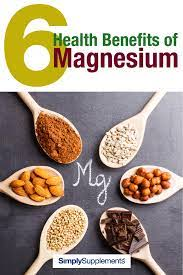5 Foods and Drinks That Reduce Bloating Naturally. Feeling bloated can be more than just uncomfortable—it can affect your confidence and disrupt your daily routine. Fortunately, what you eat plays a significant role in how your digestive system functions. According to Michael Genovese, MD, physician and chief medical advisor at Ascendant New York, certain foods and drinks can naturally reduce bloating and help you achieve a flatter stomach. This article highlights five effective options, explains how to incorporate them into your diet, and outlines common culprits that can worsen bloating.
5 Foods and Drinks That Reduce Bloating Naturally
When managing bloating through your diet, Michael Genovese, MD, physician and chief medical advisor at Ascendant New York, recommends a twofold approach: Add in foods that reduce bloating while cutting back on those known to trigger it. To help you get started, experts suggest incorporating more of these bloat-fighting foods into your meals:

Ginger and Turmeric
Ginger is well-known for its ability to soothe digestive distress. It contains compounds like gingerol that relax the intestinal tract and speed up stomach emptying, which can help relieve bloating quickly. Turmeric, on the other hand, boasts curcumin—a powerful anti-inflammatory compound that has been studied for its potential to reduce gut inflammation and digestive discomfort. Both can be consumed as teas, added to smoothies, or used in cooking for their bloat-busting benefits.
Peppermint
Peppermint, particularly in the form of tea, is a traditional remedy for gastrointestinal issues. Peppermint oil has been shown to decrease inflammation and relieve symptoms of irritable bowel syndrome (IBS), such as stomach pain and bloating. While more research is needed on peppermint tea specifically, many people find it soothing after meals.
Asparagus
Asparagus is a fiber-rich vegetable that also contains inulin, a prebiotic that supports healthy gut bacteria. Its natural diuretic properties help flush excess water and sodium from the body, reducing water retention and abdominal distension. Including asparagus in salads, stir-fries, or as a side dish can support regular digestion and minimize bloating.
Yogurt
Yogurt is packed with probiotics—beneficial bacteria that promote gut health and regular bowel movements. Studies show that probiotics can help reduce bloating, particularly in people with digestive disorders. Opt for plain, unsweetened yogurt to avoid added sugars that may contribute to bloating.
Cucumber
Cucumbers are composed of about 95% water, making them excellent for hydration and reducing bloating related to water retention. Some research suggests that cucumbers may also help relieve symptoms of IBS, such as abdominal pain and diarrhea. Enjoy them sliced in salads, infused in water, or as a refreshing snack.
How to Eat Bloat-Reducing Foods Regularly
Incorporating these foods into your daily routine is easier than it may seem. Here are practical tips for making them a staple in your diet:
- Start your day with yogurt and fresh fruit, such as berries or kiwi, for a probiotic-rich breakfast.
- Add ginger or turmeric to your morning smoothie or oatmeal for an anti-inflammatory boost.
- Sip peppermint or ginger tea after meals to aid digestion.
- Include asparagus and cucumber in salads, wraps, or as snacks throughout the week.
- Experiment with stir-fries or soups that feature these vegetables and spices.
Consistency is key. By making these foods a regular part of your meals, you can support gut health, reduce inflammation, and minimize the risk of bloating over time.
Foods That Cause Bloating: What to Avoid

While some foods help reduce bloating, others can make it worse, especially for those with sensitivities or intolerances. Common culprits include:
- Carbonated drinks (soda, beer): The bubbles introduce excess gas into your digestive tract, leading to bloating.
- Legumes and beans: High in fiber and oligosaccharides, they can be difficult to digest and cause gas.
- Cruciferous vegetables (broccoli, cauliflower, Brussels sprouts, cabbage): These are nutritious but can cause bloating in some people due to their fiber and raffinose content.
- Onions and garlic: They contain fructans, which can be hard to digest and may lead to gas and bloating.
- Nuts (especially cashews and pistachios): High in fiber and fat, which can slow digestion and cause discomfort.
- Whole grains: While healthy, their fiber content can cause bloating if your body isn’t used to them.
- Dairy products: For those with lactose intolerance, milk, cheese, and ice cream can lead to gas and bloating.
Additional Strategies for a Flatter Stomach
Beyond food choices, certain habits can further reduce bloating:
- Eat and chew slowly to prevent swallowing excess air.
- Drink water throughout the day to support digestion.
- Avoid drinking through straws, chewing gum, and sucking on hard candy, as these can introduce air into your digestive tract.
- Opt for smaller, more frequent meals instead of large ones.
- Stay active—regular exercise helps stimulate digestion and reduce fluid retention.
Conclusion
Bloating is a common issue, but it doesn’t have to be a daily struggle. By focusing on foods and drinks like ginger, turmeric, peppermint, asparagus, yogurt, and cucumber, you can support your digestive system and enjoy a flatter, more comfortable stomach. At the same time, minimizing foods that commonly cause bloating and adopting healthy eating habits can make a significant difference. Remember, everyone’s body is different—pay attention to how you feel after eating certain foods and adjust your diet accordingly for optimal gut health and comfort.
Also Read | Best Foods, Drinks & Exercises to Prevent Osteoporosis Naturally—No Medication Needed
Content source – www.soundhealthandlastingwealth.com

